Brooklyn Factories Producing Up to 65,000 Isolation Gowns Per Week
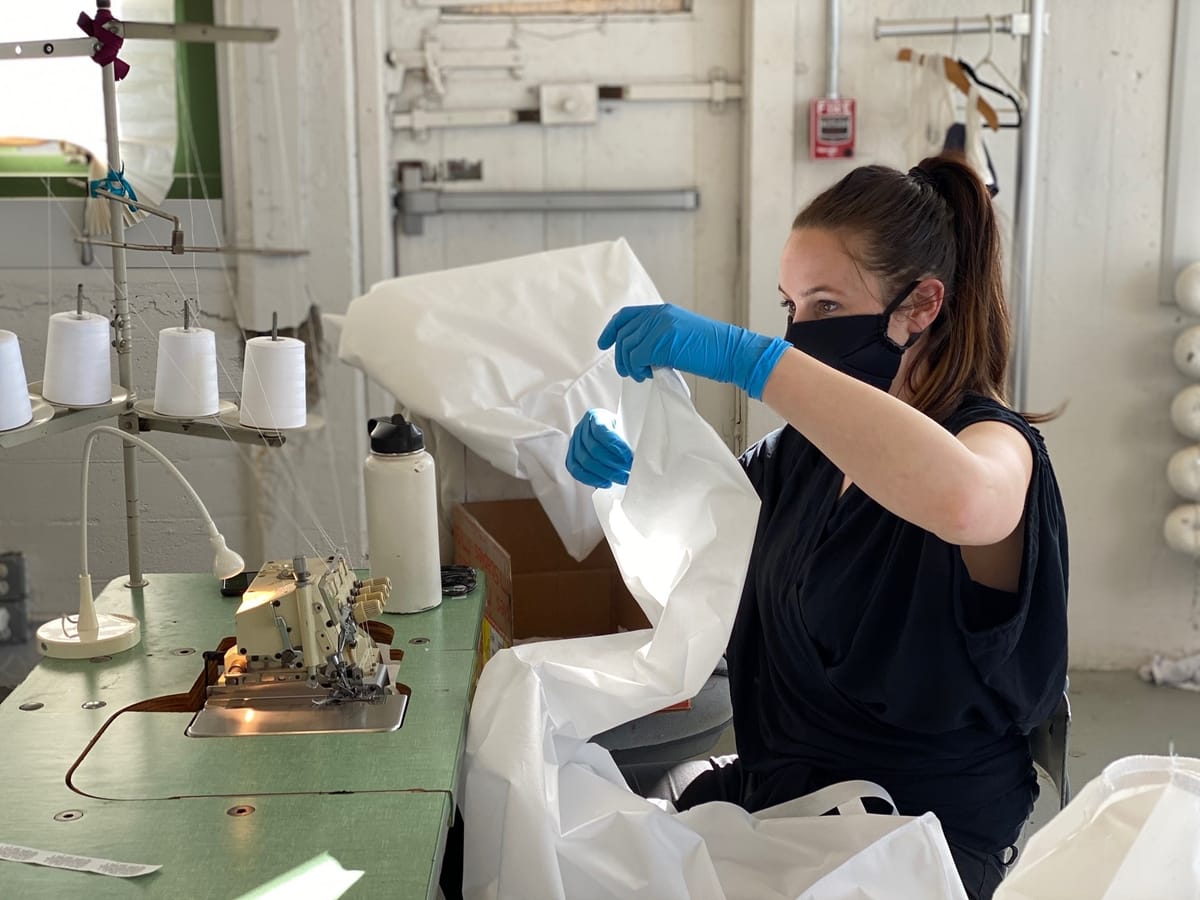
When quarantine began, Libby Mattern saw an opportunity to help. As the founder of Course of Trade, a nonprofit that teaches industrial sewing skills to needy New Yorkers, and the production runner of Malia Mills, she knew the capabilities that Brooklyn’s factories had. Since starting the process in mid-March, she’s now mobilized more than six factories to make PPE gear that is then distributed to local hospitals.
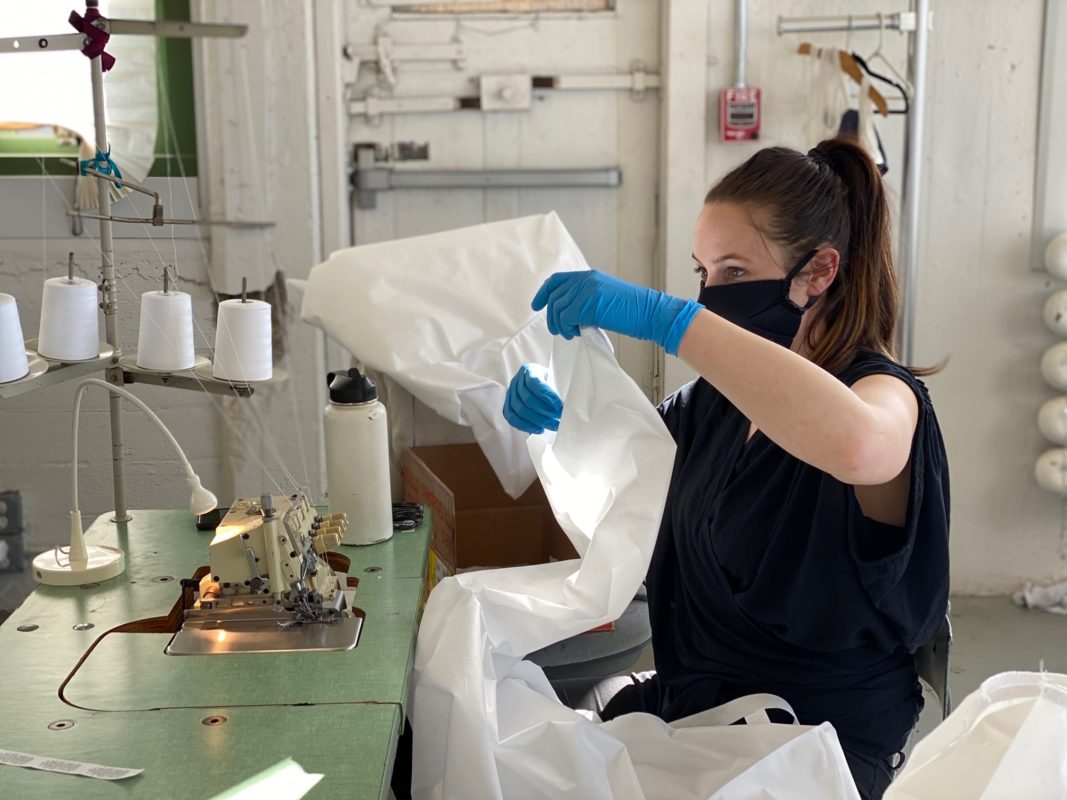
“We were working to source fabric, which as you can imagine is in very high demand right now. Mayor de Blasio stepped in and was able to find fabric for us, which was great, and UPS helped truck everything in in an incredibly speedy manner. We were able to get everything and we started officially sewing last week,” Mattern said. According to their projections, the factories should be able to produce up to 65,000 gowns every week.
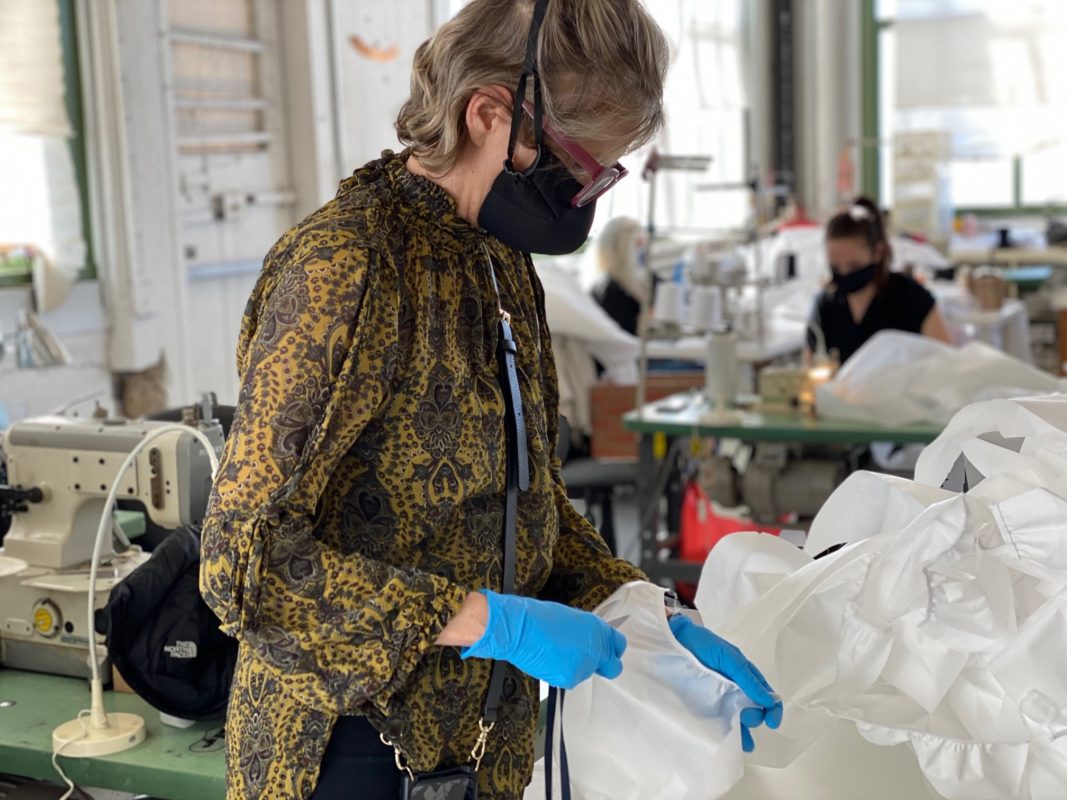
This is not work that can be done remotely, Mattern says, both due to the scale and the skills needed.
“It’s very industrial. The beautiful thing about a factory is that it is such a team, each person is doing stuff and passing it onto the next person. It’s an incredible chain of people and every person needs to be really on their game to say, ‘yup I know what I’m doing and I’m operating as fast as humanly possible to get these out,’” she said.
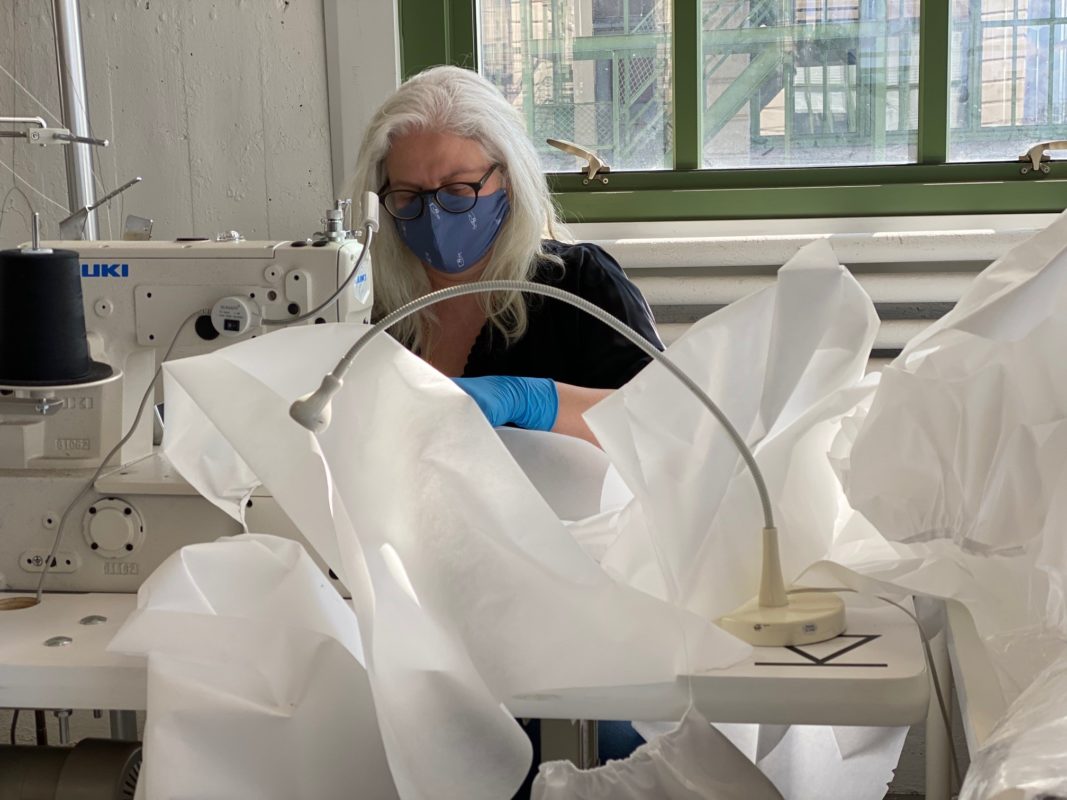
In addition to helping hospitals, the project ensures that the manufacturing community in Brooklyn still has work, and is able to come back once the crisis passes. Most of the participating small businesses – like Malia Mills, That’s My Girl, Double Take Fashions, BMGM, Stitched, by Grace, and the Fashion Poet – have stopped the production of their own goods, as sales are down and stores were forced to close.
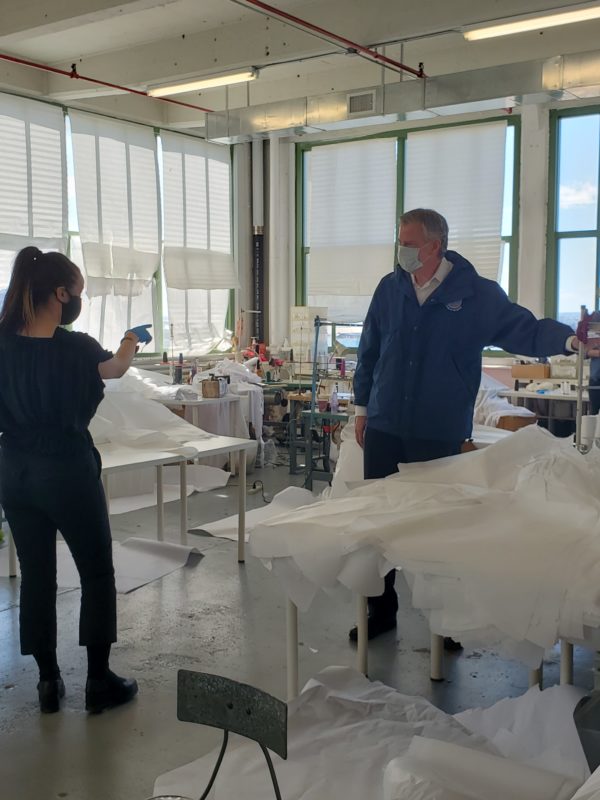
“There are so many factories that are sitting dormant, and we have the know-how. This is what makes manufacturing in New York so incredible. We can turn on a dime and go from producing swimwear to producing PPE isolation gowns. And, we can get it to market very quickly because we’re right here,” Mattern said. “We have to ensure that our manufacturing workforce stays vibrant and really continues to be able to produce for the city. This is what is such a boom for small businesses, it’s what allows small businesses in New York to keep going.” Without local factories, small businesses would be forced to look overseas for production, which can be extremely expensive and require high minimums that aren’t realistic for someone just starting out.
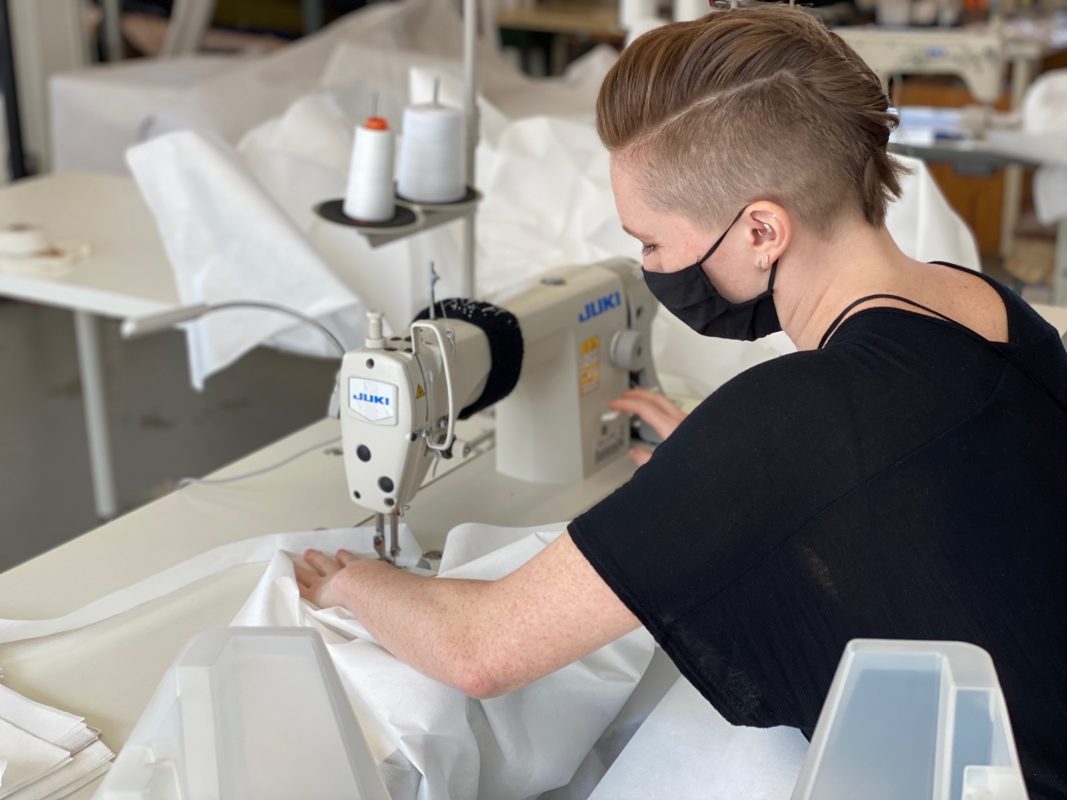
The New York Economic Development Corporation, who Mattern works with on Course of Trade as well, is involved in the project, contracting the factories who make the gowns – most of them located in Southern Brooklyn, Industry City and the Brooklyn Army Terminal.
The sewing jobs are paying “very competitively” says Mattern, and are always looking for those with the skills to join teams.




